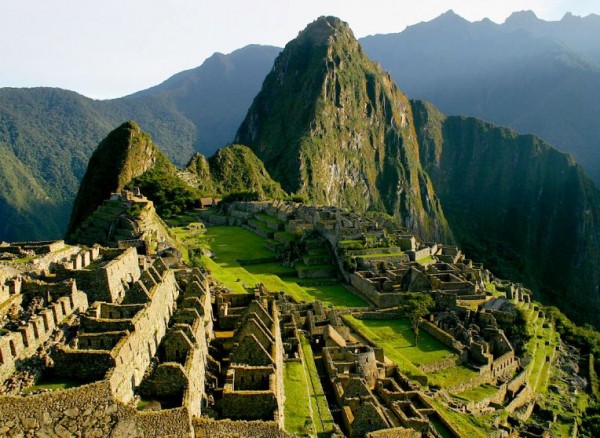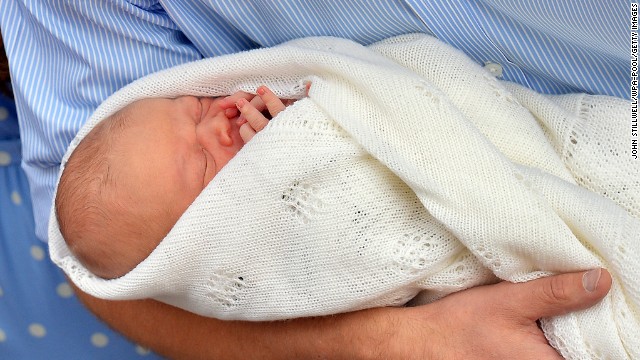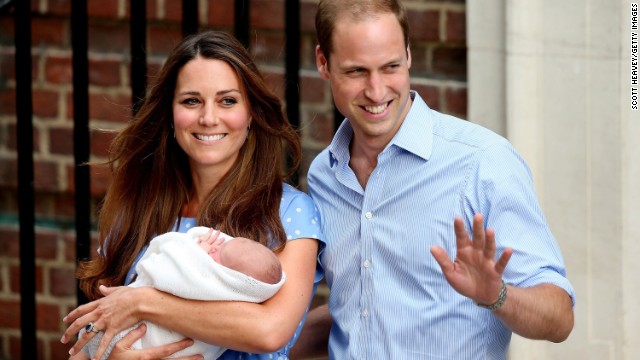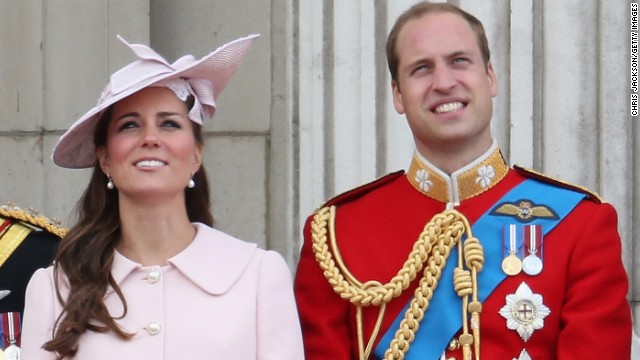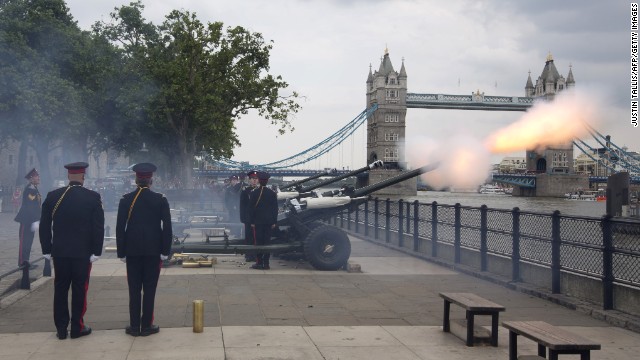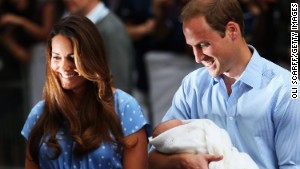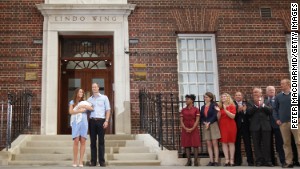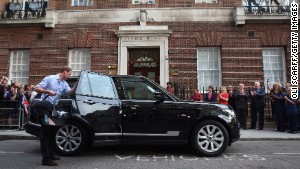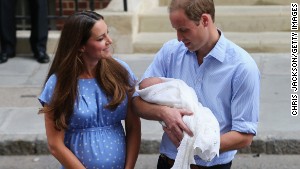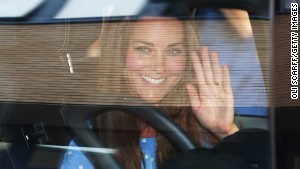Final push to finish line
For
a month now, the campaign has grown increasingly frenetic. Supporters
have poured into the streets by the tens of thousands for ruling and
opposition party rallies alike. On motorbikes and by the truckload,
campaigners have overrun cities large and small, chanting party slogans.
Today, that culminates in the largest day of campaigning yet, as parties strive to make one final pitch before the 24 hours of silence leading up to Sunday’s vote.
Nearly every one of the eight parties running — from the ruling Cambodian People’s Party down to the tiny Khmer Anti-Poverty Party — have big plans for the last day of the campaign period.
“We’re going to have a little fun on that last day,” Cambodia National Rescue Party lawmaker candidate Son Chhay told the Post.
Fresh from their cross-country tour, opposition leader Sam Rainsy and his deputy, Kem Sokha, will hit up battleground provinces Kampong Cham and Kandal today, finishing with a rally at Phnom Penh’s Freedom Park.
The Cambodian People’s Party, meanwhile, is planning large rallies in nearly every major province, CPP spokesman and lawmaker candidate Khieu Kanharith said.
“For the last day of campaigning, besides showing off in urban areas, we concentrate on rallying our supporters at the district and village level; this will make a difference,” Kanharith said.
Funcinpec, too, said it was expecting a few thousand supporters at rallies in Phnom Penh, Banteay Meanchey and Kampong Cham.
The show of support has been a marked about-face from previous elections, many observed.
“In terms of campaigning, I’ve never seen anything like it in terms of the activism, the youth involvement, the campaigning on the streets,” said Laura Thornton, resident director of the National Democratic Institute.
She and others highlighted a near complete lack of violence as a significant shift in the pre-election atmosphere.
The handful of incidents — which have included supporters from the opposition and ruling parties chucking water bottles at one another, a bullet fired into the CNRP offices, and fighting between young party activists that ended when shots were fired into the air — have been isolated and relatively injury-free.
“It’s been quite a change, and as a citizen, I’m happy to see it,” political analyst Lao Mong Hay said. “I feel there is a rebirth of cultural peace. It could be a step towards genuine democratisation.”
By the numbers
Eight political parties will duke it out for 123 seats across the Kingdom’s 24 provinces.
The ruling Cambodian People’s Party, which holds 90 of those seats, is expected to retain power — but victory won’t come without a fight from the Cambodia National Rescue Party.
This alliance, formed from a merger between the Sam Rainsy Party and the Human Rights Party in the wake of last year’s commune elections, will be hoping to do more than just build on the 29 seats they won last election.
The royalists, meanwhile, subsumed under the Funcinpec banner after a merger last year, have grand plans as well. Though Funcinpec won just two seats in 2008 and the now-defunct Norodom Ranariddh Party held only another two, party officials said they had high hopes for the future.
“Now [that] we joined together into one royalist party … our seats will increase this term,” said spokesman Tum Sambo. “We expect around 13, 14, 15 seats.”
For small parties, the chance to join the fight is half the battle.
“We don’t take the campaign so serious; what we take more seriously is the media,” said League for Democracy candidate Sang Leng, who is contesting Kampong Speu and, who, like others, complained that CPP domination of the media made it nearly impossible to get the word out.
At least 9.6 million people are registered to cast a ballot come Sunday for one of those eight parties. But how many show up is anyone’s guess. While 12 million ballot papers have been printed, it is likely overkill; in the past 15 years, voter turnout has been steadily declining.
Almost 94 per cent of voters cast a ballot in the 1998 election, a figure that fell to about 83 per cent five years later. At the 2008 election, only 75 per cent of those eligible to vote did so.
But voter numbers could be set to increase.
Analyst Mong Hay said that because the lead-up to the election had been calmer and less bloody than in previous campaigns, more people felt comfortable exercising their freedom to take sides.
“This time, the climate and environment is much, much different than previous elections. There have been fewer restrictions on the opposition and less intimidation,” he said. “I expect a bigger turnout than in previous elections.”
Looking forward
Almost doubtless, the CPP will win by a landslide. But for the first time since 1993, they will likely see a diminution in seat numbers, analysts predicted.
Shifting demographics, a re-energised opposition, and the near-surety that such meteoric gains can’t last forever, means the CPP will likely wind up ceding some seats to the CNRP.
“The opposition will make a big change, because the formula favours big parties,” said Cambodian Center for Human Rights president Ou Virak, who predicted that the CNRP could up the number of seats they held in Kampong Cham, Kampong Speu, Kandal, Prey Veng and Takeo provinces.
Less likely, however, was the possibility the CNRP could make inroads into remote, single-seat provinces.
“It’s nothing to do with rural and urban [however] … it’s more about access to radio. The CNRP is doing better in Phnom Penh because that’s where [radio] can be heard,” Virak said.
The labour force
Garment workers will be a key demographic in this election, as shown by the two major parties’ strong commitment to improving their minimum wage in the months before the election.
Most of the 400,000-plus workers in the industry are over 18, under 30 and female — and some researchers and social commentators believe them to be more politically aware and active than their counterparts at university.
The industry is divided along party lines. Pro-government unions take up most of the space; opposition-aligned unions — along with independent unions — do most of the striking outside factories, pleading for better working conditions.
“Most garment workers are pro-opposition and not voting in one area,” said Virak, from CCHR. “They’re returning home to areas where there is no media that the opposition can access. But they’re sharing a lot more information with their friends when they return to their provinces, which can have an overall impact.”
The land issue
According to NGOs, more than 700,000 people have been affected by land grabbing and forced displacement since 2000. About 10 per cent of the capital’s population — or 145,000 — have been evicted since that time.
The CNRP has made it a mission to put an end to forced displacement, but it remains to be seen to what extent it influences voters in eviction hotspots such as the Borei Keila and Boeung Kak communities in Phnom Penh and remote provinces such as Ratanakkiri, where economic-land concessions are swallowing up villages and forest.
Some affected by land disputes, however, are no longer in the Kingdom. They’re among the 300,000-plus Cambodians who have gone to Thailand in search of work.
Many of them work in factories or on Thai construction sites for companies that won’t allow them to return home to vote.
About three per cent of the vote will lie dormant across the western border — a figure that is higher when including Cambodian workers in other countries. None can lodge a ballot, because the government has no agreements with other countries to do so.
Demographic shift
Four million fewer voters were registered in 1998 than this election. As the population has surged and urbanisation has ballooned, the allocation of National Assembly seats has remained the same.
“It’s been 10 years and there have been significant shifts between populations in provinces. If you’re not shifting seats, you’re underweighting or overweighting votes,” Laura Thornton, resident director of the National Democratic Institute, told the Post last week.
Underscoring an increase in political activity in urban areas has been the number of youths campaigning across Phnom Penh in the past month.
This election will be Cambodia’s youngest. More than 3.5 million people between 18 and 30 will have the chance to vote, and for almost half of them, it will be their first national election.
Five years between elections is a long time. Technology moves fast, and since 2008’s election, the rise of social networking sites such as Facebook in Cambodia means young people are getting their information from sources other than just government-controlled media.
Keen to control the message, Hun Sen’s son, lawmaker candidate and youth-wing leader, Hun Many, earlier this week urged some 15,000 young CPP supporters to avoid rocking the boat.
“We have to protect the peaceful trees that we have been harvesting for fruit,” he told them.
Mounting concerns
With so many shifts since 2008, the stakes are high and complaints of irregularities are rife. Violence may indeed be a thing of the past, but non-ruling parties complained of ample interference, while monitors have repeatedly warned of the vast irregularities in the voter list.
“The cheating has gotten quite serious,” said the CNRP’s Chhay, who pointed to ghost voters, duplicate names and people being left off the registry as the biggest concerns come Sunday.
Since the start of the campaign period, 304 complaints have been filed with the NEC, many of them focused on relatively small issues, said Ke Rith, deputy director of the NEC’s legal services and dispute department.
“Most of the complaints are related to the destroying of leaflets or disturbing of campaigns, and this year, there has been some violence, of throwing stones at each others,” he said.
In a statement issued yesterday, election watchdog Comfrel said it had recorded a number of problems including threats made to opposition supporters, campaigning obstruction, outright or implied vote-buying, and unequal media access, among others.
Supporters from almost every party, meanwhile, have complained of their signs being torn down, vandalism and intimidation.
“We come across all the hassles,” said Khmer Anti-Poverty Party president Daran Kravanh.
Bigger still, is the raft of problems with the voter lists, which monitors have been seeking to highlight for months.
In an audit published earlier this year, NDI and Nicfec warned that 9.4 per cent of voter names had been wrongfully removed, while hundreds of thousands of extra names were elsewhere bloating the rolls. Separately, the Post has uncovered tens of thousands of exact duplicate names.
“Many people have two names — [they’re listed] in Phnom Penh and in the provinces. We don’t know whether NEC will clean it,” said Nicfec’s Puthea. “It’s better this election [regarding campaign violence], but we could not say about fair and could not say about free.”
If hundreds of thousands show up on Election Day, meanwhile, to find they’re off the list when they believe they have registered, “they may not take it lightly”, said NDI’s Thornton. “It has the potential to lead to chaos at the poll.”
Excess voter registration figures, coupled with some half a million temporary ID replacement forms issued since election registration closed, opens up the possibility of problems, Thornton said. “I just think this is not boding well. It makes me concerned about the quality of the election.”
Seeking to allay such fears, spokesman for the Ministry of Foreign Affairs, Koy Kuong, insisted yesterday that elections would be “free, fair and peaceful”.
Speaking to reporters following a meeting between the foreign minister and the newly appointed Chinese ambassador, Kuong stressed that the government had similar wishes.
“We hope that the election will proceed smoothly, democratically and transparently; and not cause chaos as claimed by some.”
REPORTING BY SHANE WORRELL, CHEANG SOKHA, ABBY SEIFF, SEAN TEEHAN, KEVIN PONNIAH, STUART WHITE AND CHHAY CHANNYDA
Today, that culminates in the largest day of campaigning yet, as parties strive to make one final pitch before the 24 hours of silence leading up to Sunday’s vote.
Nearly every one of the eight parties running — from the ruling Cambodian People’s Party down to the tiny Khmer Anti-Poverty Party — have big plans for the last day of the campaign period.
“We’re going to have a little fun on that last day,” Cambodia National Rescue Party lawmaker candidate Son Chhay told the Post.
Fresh from their cross-country tour, opposition leader Sam Rainsy and his deputy, Kem Sokha, will hit up battleground provinces Kampong Cham and Kandal today, finishing with a rally at Phnom Penh’s Freedom Park.
The Cambodian People’s Party, meanwhile, is planning large rallies in nearly every major province, CPP spokesman and lawmaker candidate Khieu Kanharith said.
“For the last day of campaigning, besides showing off in urban areas, we concentrate on rallying our supporters at the district and village level; this will make a difference,” Kanharith said.
Funcinpec, too, said it was expecting a few thousand supporters at rallies in Phnom Penh, Banteay Meanchey and Kampong Cham.
The show of support has been a marked about-face from previous elections, many observed.
“In terms of campaigning, I’ve never seen anything like it in terms of the activism, the youth involvement, the campaigning on the streets,” said Laura Thornton, resident director of the National Democratic Institute.
She and others highlighted a near complete lack of violence as a significant shift in the pre-election atmosphere.
The handful of incidents — which have included supporters from the opposition and ruling parties chucking water bottles at one another, a bullet fired into the CNRP offices, and fighting between young party activists that ended when shots were fired into the air — have been isolated and relatively injury-free.
“It’s been quite a change, and as a citizen, I’m happy to see it,” political analyst Lao Mong Hay said. “I feel there is a rebirth of cultural peace. It could be a step towards genuine democratisation.”
By the numbers
Eight political parties will duke it out for 123 seats across the Kingdom’s 24 provinces.
The ruling Cambodian People’s Party, which holds 90 of those seats, is expected to retain power — but victory won’t come without a fight from the Cambodia National Rescue Party.
This alliance, formed from a merger between the Sam Rainsy Party and the Human Rights Party in the wake of last year’s commune elections, will be hoping to do more than just build on the 29 seats they won last election.
The royalists, meanwhile, subsumed under the Funcinpec banner after a merger last year, have grand plans as well. Though Funcinpec won just two seats in 2008 and the now-defunct Norodom Ranariddh Party held only another two, party officials said they had high hopes for the future.
“Now [that] we joined together into one royalist party … our seats will increase this term,” said spokesman Tum Sambo. “We expect around 13, 14, 15 seats.”
For small parties, the chance to join the fight is half the battle.
“We don’t take the campaign so serious; what we take more seriously is the media,” said League for Democracy candidate Sang Leng, who is contesting Kampong Speu and, who, like others, complained that CPP domination of the media made it nearly impossible to get the word out.
At least 9.6 million people are registered to cast a ballot come Sunday for one of those eight parties. But how many show up is anyone’s guess. While 12 million ballot papers have been printed, it is likely overkill; in the past 15 years, voter turnout has been steadily declining.
Almost 94 per cent of voters cast a ballot in the 1998 election, a figure that fell to about 83 per cent five years later. At the 2008 election, only 75 per cent of those eligible to vote did so.
But voter numbers could be set to increase.
Analyst Mong Hay said that because the lead-up to the election had been calmer and less bloody than in previous campaigns, more people felt comfortable exercising their freedom to take sides.
“This time, the climate and environment is much, much different than previous elections. There have been fewer restrictions on the opposition and less intimidation,” he said. “I expect a bigger turnout than in previous elections.”
Looking forward
Almost doubtless, the CPP will win by a landslide. But for the first time since 1993, they will likely see a diminution in seat numbers, analysts predicted.
Shifting demographics, a re-energised opposition, and the near-surety that such meteoric gains can’t last forever, means the CPP will likely wind up ceding some seats to the CNRP.
“The opposition will make a big change, because the formula favours big parties,” said Cambodian Center for Human Rights president Ou Virak, who predicted that the CNRP could up the number of seats they held in Kampong Cham, Kampong Speu, Kandal, Prey Veng and Takeo provinces.
Less likely, however, was the possibility the CNRP could make inroads into remote, single-seat provinces.
“It’s nothing to do with rural and urban [however] … it’s more about access to radio. The CNRP is doing better in Phnom Penh because that’s where [radio] can be heard,” Virak said.
The labour force
Garment workers will be a key demographic in this election, as shown by the two major parties’ strong commitment to improving their minimum wage in the months before the election.
Most of the 400,000-plus workers in the industry are over 18, under 30 and female — and some researchers and social commentators believe them to be more politically aware and active than their counterparts at university.
The industry is divided along party lines. Pro-government unions take up most of the space; opposition-aligned unions — along with independent unions — do most of the striking outside factories, pleading for better working conditions.
“Most garment workers are pro-opposition and not voting in one area,” said Virak, from CCHR. “They’re returning home to areas where there is no media that the opposition can access. But they’re sharing a lot more information with their friends when they return to their provinces, which can have an overall impact.”
The land issue
According to NGOs, more than 700,000 people have been affected by land grabbing and forced displacement since 2000. About 10 per cent of the capital’s population — or 145,000 — have been evicted since that time.
The CNRP has made it a mission to put an end to forced displacement, but it remains to be seen to what extent it influences voters in eviction hotspots such as the Borei Keila and Boeung Kak communities in Phnom Penh and remote provinces such as Ratanakkiri, where economic-land concessions are swallowing up villages and forest.
Some affected by land disputes, however, are no longer in the Kingdom. They’re among the 300,000-plus Cambodians who have gone to Thailand in search of work.
Many of them work in factories or on Thai construction sites for companies that won’t allow them to return home to vote.
About three per cent of the vote will lie dormant across the western border — a figure that is higher when including Cambodian workers in other countries. None can lodge a ballot, because the government has no agreements with other countries to do so.
Demographic shift
Four million fewer voters were registered in 1998 than this election. As the population has surged and urbanisation has ballooned, the allocation of National Assembly seats has remained the same.
“It’s been 10 years and there have been significant shifts between populations in provinces. If you’re not shifting seats, you’re underweighting or overweighting votes,” Laura Thornton, resident director of the National Democratic Institute, told the Post last week.
Underscoring an increase in political activity in urban areas has been the number of youths campaigning across Phnom Penh in the past month.
This election will be Cambodia’s youngest. More than 3.5 million people between 18 and 30 will have the chance to vote, and for almost half of them, it will be their first national election.
Five years between elections is a long time. Technology moves fast, and since 2008’s election, the rise of social networking sites such as Facebook in Cambodia means young people are getting their information from sources other than just government-controlled media.
Keen to control the message, Hun Sen’s son, lawmaker candidate and youth-wing leader, Hun Many, earlier this week urged some 15,000 young CPP supporters to avoid rocking the boat.
“We have to protect the peaceful trees that we have been harvesting for fruit,” he told them.
Mounting concerns
With so many shifts since 2008, the stakes are high and complaints of irregularities are rife. Violence may indeed be a thing of the past, but non-ruling parties complained of ample interference, while monitors have repeatedly warned of the vast irregularities in the voter list.
“The cheating has gotten quite serious,” said the CNRP’s Chhay, who pointed to ghost voters, duplicate names and people being left off the registry as the biggest concerns come Sunday.
Since the start of the campaign period, 304 complaints have been filed with the NEC, many of them focused on relatively small issues, said Ke Rith, deputy director of the NEC’s legal services and dispute department.
“Most of the complaints are related to the destroying of leaflets or disturbing of campaigns, and this year, there has been some violence, of throwing stones at each others,” he said.
In a statement issued yesterday, election watchdog Comfrel said it had recorded a number of problems including threats made to opposition supporters, campaigning obstruction, outright or implied vote-buying, and unequal media access, among others.
Supporters from almost every party, meanwhile, have complained of their signs being torn down, vandalism and intimidation.
“We come across all the hassles,” said Khmer Anti-Poverty Party president Daran Kravanh.
Bigger still, is the raft of problems with the voter lists, which monitors have been seeking to highlight for months.
In an audit published earlier this year, NDI and Nicfec warned that 9.4 per cent of voter names had been wrongfully removed, while hundreds of thousands of extra names were elsewhere bloating the rolls. Separately, the Post has uncovered tens of thousands of exact duplicate names.
“Many people have two names — [they’re listed] in Phnom Penh and in the provinces. We don’t know whether NEC will clean it,” said Nicfec’s Puthea. “It’s better this election [regarding campaign violence], but we could not say about fair and could not say about free.”
If hundreds of thousands show up on Election Day, meanwhile, to find they’re off the list when they believe they have registered, “they may not take it lightly”, said NDI’s Thornton. “It has the potential to lead to chaos at the poll.”
Excess voter registration figures, coupled with some half a million temporary ID replacement forms issued since election registration closed, opens up the possibility of problems, Thornton said. “I just think this is not boding well. It makes me concerned about the quality of the election.”
Seeking to allay such fears, spokesman for the Ministry of Foreign Affairs, Koy Kuong, insisted yesterday that elections would be “free, fair and peaceful”.
Speaking to reporters following a meeting between the foreign minister and the newly appointed Chinese ambassador, Kuong stressed that the government had similar wishes.
“We hope that the election will proceed smoothly, democratically and transparently; and not cause chaos as claimed by some.”
REPORTING BY SHANE WORRELL, CHEANG SOKHA, ABBY SEIFF, SEAN TEEHAN, KEVIN PONNIAH, STUART WHITE AND CHHAY CHANNYDA
